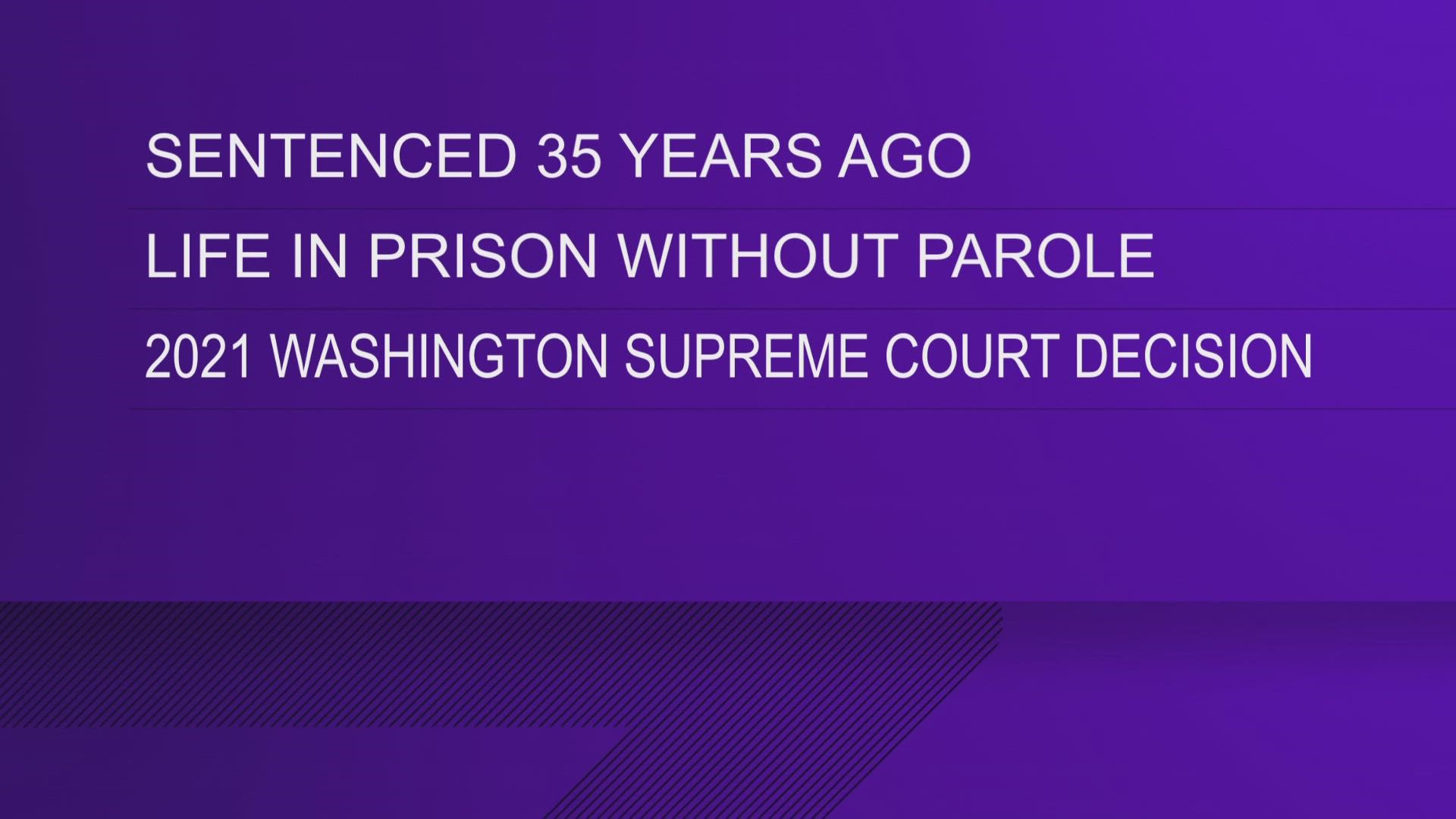SPOKANE, Wash. — More than 35 years ago, then-18-year-old Christopher Blystone shot and killed Steven Foster, a pharmacy clerk. At 20, Blystone was sentenced to life without the possibility of parole.
On Friday morning, he will be resentenced.
Blystone was arrested in connection with the murder of Foster on July 9, 1986. He was charged with first-degree murder, two counts of second-degree assault, and multiple counts of theft and robbery. The first-degree murder charge was later amended to aggravated first-degree murder on Oct. 6, 1986, according to court documents.
He pleaded guilty to one count of aggravated first-degree murder in exchange for dismissal of the other charges on March 16, 1988. The guilty plea also took the death penalty off the table.
He was just 20 years old when he was sentenced to life in prison without the possibility of parole.
30 years later, in 2018, the Washington State Supreme Court ruled that sentencing juveniles to life without parole is unconstitutional. The ruling only applied to those who were 17 or younger when the crime was committed.
But in a 5-4 decision in 2021, the majority of the Washington Supreme Court ruled the same rationale must apply to 18- to 20-year-olds.
The ruling made Washington the first state to ban mandatory life without parole terms for offenders who, while over 18 and legally considered adults, might remain in adolescence from a brain-development standpoint.
Blystone began using drugs while he was in middle school, which his brother attributes to him witnessing his father's extramarital affair. After he was charged with joyriding in a stolen car, Blystone was sent to a drug unit in Butte, Mont. in December 1984 and was later transferred to the psychiatric unit in the hospital, according to court documents.
At the time of his hospital stay, one of Blystone's friends committed suicide. Court documents state that Blystone identified with that friend and also felt suicidal at times.
When the murder occurred, Blystone was using cocaine very heavily as well as marijuana and alcohol. During his trial, a doctor wrote a report that stated Blystone's development "was severely impaired starting from an early age."
The doctor wrote that Blystone's need to please older people resulted in him shoplifting and using alcohol when he was in first and second grade. In addition, the doctor claimed that Blystone "had essentially no parenting other than from his peers and failed to develop a strong conscience or value system."
Blystone's lawyer wrote in court documents that Bylstone used his time in prison "to transform the prison culture into something meaningful," detailing his involvement in numerous educational and outreach programs within the prison.
"There is nothing Mr. Blystone can do to bring back Steven Foster," his lawyer wrote in court documents. "However, he has spent every day since trying to make up for what he did, trying to make sure no other family goes through what the Foster family went through."
His resentencing hearing is set to take place on Friday, June 3 at 10 a.m.

